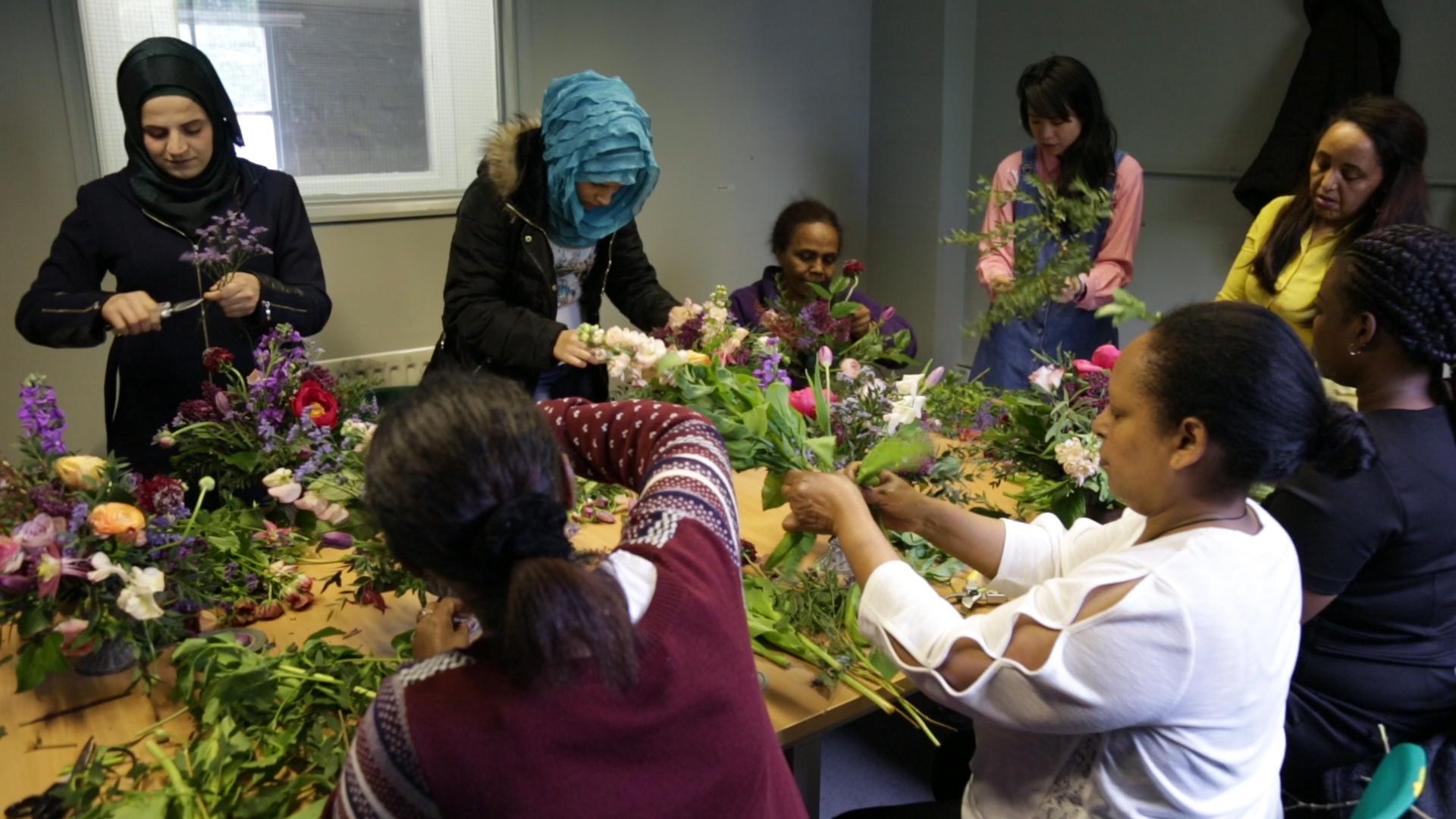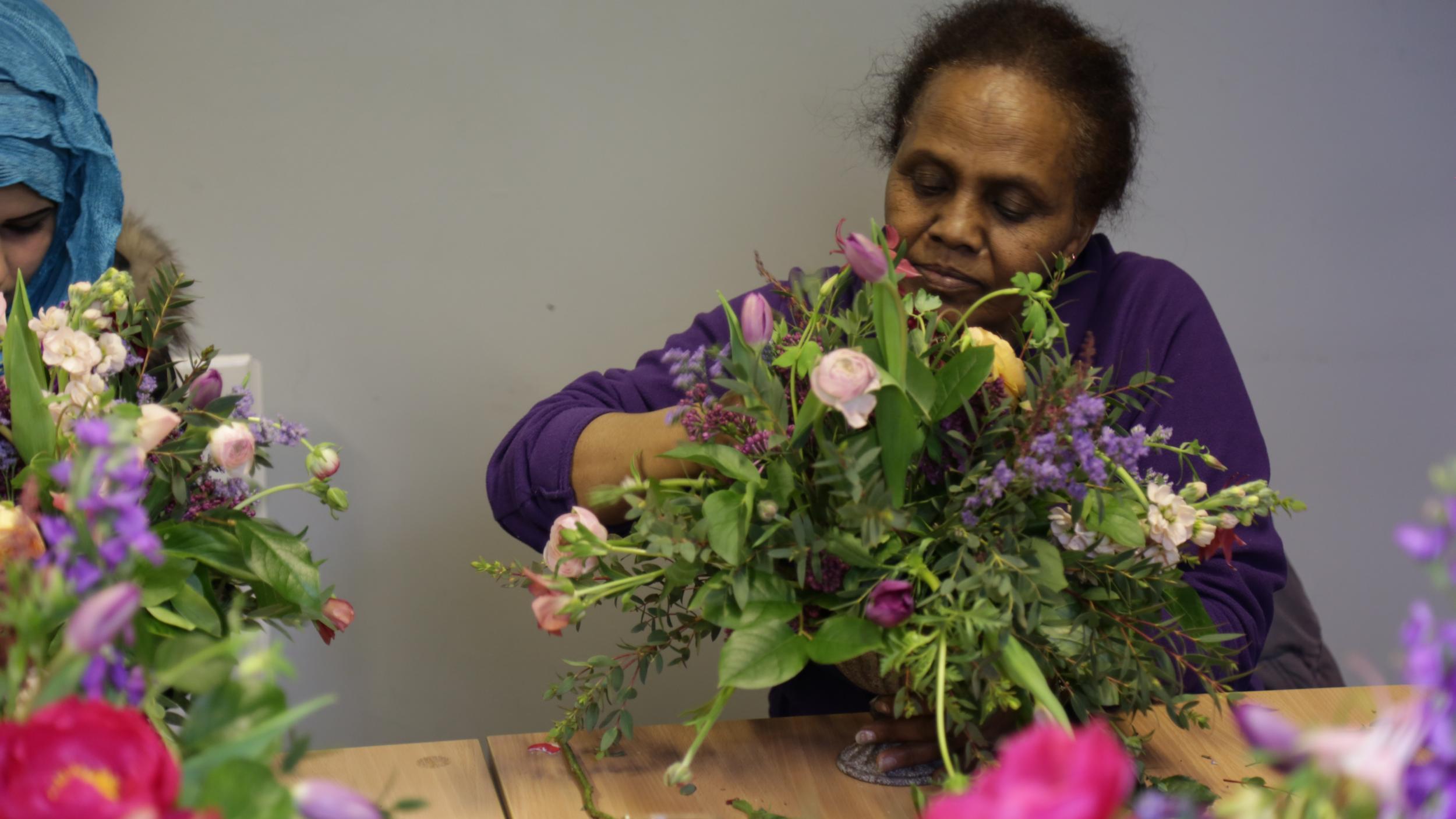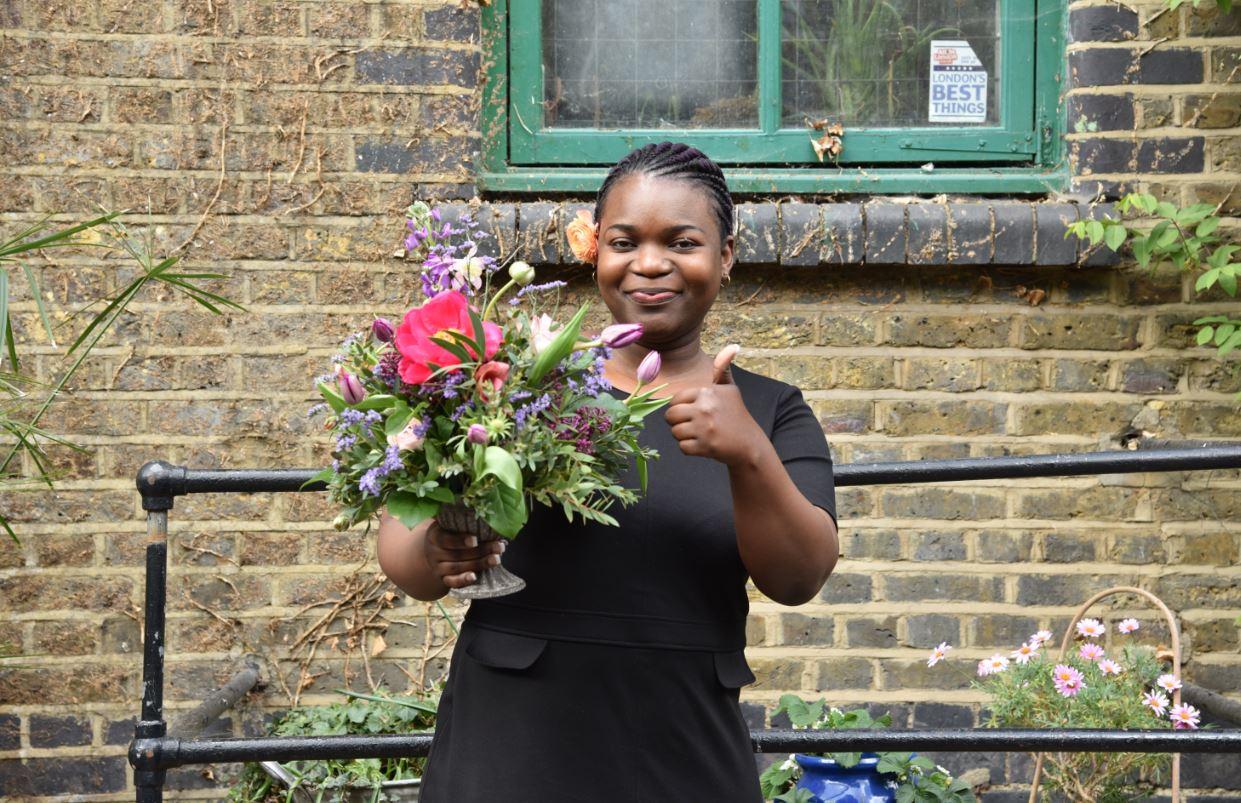Bread and Roses: Meet the refugee women finding employment through floristry
'We wanted to help women get a step up into jobs that would be more meaningful'
Your support helps us to tell the story
From reproductive rights to climate change to Big Tech, The Independent is on the ground when the story is developing. Whether it's investigating the financials of Elon Musk's pro-Trump PAC or producing our latest documentary, 'The A Word', which shines a light on the American women fighting for reproductive rights, we know how important it is to parse out the facts from the messaging.
At such a critical moment in US history, we need reporters on the ground. Your donation allows us to keep sending journalists to speak to both sides of the story.
The Independent is trusted by Americans across the entire political spectrum. And unlike many other quality news outlets, we choose not to lock Americans out of our reporting and analysis with paywalls. We believe quality journalism should be available to everyone, paid for by those who can afford it.
Your support makes all the difference.Amira smiles as she puts the final touches on a bouquet of flowers in front of her.
“Sweet Williams are my favourite,” she says, gesturing to the fuchsia blooms at the centre of the arrangement.
Amira is a refugee. Over six weeks she has learnt the fundamentals of flower arranging alongside five other refugee and asylum seeking women.
Like many others in the group, she had to leave behind a career after being forced to leave her home. In Syria, she was a teacher, a profession she loved but unable to teach in the UK, she's eager to learn a new set of skills.
“Life is very different now,” she says. “In the future I want to be learning, and working.”

Arriving on the final morning of the course before they graduate, the women have to step around heaps of freshly cut flowers. They howl with laughter as they catch up over steaming cups of tea. Having all met for the first time only six weeks ago, it’s clear they’ve become close.
The course is run by Bread and Roses, a social enterprise which trains and employs women in floristry. Meeting weekly at Hackney City Farm in east London, it’s a space to learn English, develop skills and build confidence.
Co-founded by Olivia Head and Sneh Jani in May 2016, Bread and Roses have run four programmes to date and worked with over 50 women from around the world.
“The kind of work that many refugee women end up doing because of their difficulty accessing the labour market - low paid, zero hour cleaning and caring jobs - is hugely undervalued and therefore unfulfilling,” says Olivia. “We wanted to help women get a step up into jobs that would be more meaningful.”

The phrase ‘bread and roses’ has been used as a political slogan ever since it was coined by American socialist and feminist, Rose Schneiderman, in 1912.
“It has become symbolic of the struggle of the female worker to have not only enough to buy a crust, but to be able to find meaning and joy in life and work.”
Having fled their homes in Syria, Eritrea and Angola, the trainee florists are all in the process of setting up new lives in London, a challenge they are committed to tackling quickly.
“Refugees are determined to learn English and start contributing to their new communities through work, volunteering and socialising with their neighbours,” Mariam Kemple-Hardy, head of campaigns at Refugee Action told The Independent.
“They face huge barriers to learning, from a lack of provision to long waiting lists, with women in particular affected by cuts to funding for lessons and a reduction in childcare places.”

In a bid to ensure mothers with young children are able to attend the course, Bread and Roses provides childcare for the duration of the classes. It’s a measure that has allowed Amira to keep coming back every week. While her son, 2-year-old Mohammed, attends a baby musical play session with a volunteer child-minder, Amira is free to fully engage in the classes.
Lola, a florist who volunteers with the group, speaks six languages and is constantly on hand to help with any floristry phrases getting lost in translation.
According to Lola, some participants had been too nervous to practice English before starting the classes, despite having lived in England for years.
“Here is like family and there are a lot of people to help, so they have new skills and are happy,” she said.

Equipped with floristry skills gained over the last six weeks, Amira will now be able to do paid work with Bread and Roses - making bouquets that are sold to local businesses and customers across London.
Some of the trainee florists, however, are yet to receive their refugee status which would allow them to work.The wait can be long and unpredictable; the number of asylum seekers in the UK waiting more than six months for a decision from the Home Office rose more than 70% over the last year.
Having faced such adversity to arrive in the UK, the immediate challenge facing these women has been contributing to their communities and feeling comfortable in their new country. Opportunities for them are beginning to proliferate around the UK, with Ourmala providing free yoga classes, The Chickpea Sisters helping refugee women to work by equipping them with catering skills, and Women for Refugee Women on hand to offer overarching support.
After six weeks of lessons in cutting, pruning and arranging, the newly minted florists are graduating. Armed with a certificate in floristry, all have opted to become part of the Bread and Roses freelance pool which will provide opportunities and act as an ever-expanding support network going forward.
"I'd be very happy to find any work. Yes, no problem," says Amira.
"In the future, I want too much work."
Some names in this article have been changed.

Join our commenting forum
Join thought-provoking conversations, follow other Independent readers and see their replies
Comments